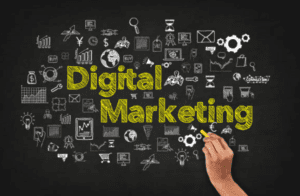FinTech Solutions 2022 - Benefits Of Choosing Fintech Solutions
Let us start with a comparison on FinTech Solutions. There was a time when we used to carry cash on hand to get groceries, medicines, and much more. we have spent long hours just depositing money in banks.
Do you agree?
What happened now?
Mobile service allows you to pay other people at any time of day, sending funds directly to their desired bank account. However, if you paid instead with cash or a check, the recipient would have to make a trip to the bank to deposit the money.
We can apply for a loan within 10 minutes. We can compare the best offers in multiple banks and choose the best one.
In what way? Let us discuss!
Today, we jump on our phones, open an app, and log in to our online banking accounts. Just a few decades ago, the transaction process was not this easy, but things were changing rapidly. A new era of Fintech trends introduces the world to online banking and trading.
Know the bank issues that led to Fintech
- The traditional banks are highly regulated and are assured of many instructions and compliance norms.
- Operating cost is high due to numerous branches across the world.
- No or Less Investment in new ideas.
- The involvement of customers is less.
- Lack of focus on profit-making products due to a disinterested approach.
- Difficulties in upgrading and replacing the core banking infrastructure.

FinTech Solutions
To make it simple FinTech is Technology empowered Financial Solutions.
Financial Technology (FinTech) is used to automate the delivery and use of financial services. It helps companies, and business owners better manage their financial operations through smart algorithms used on computers and smartphones. Some examples of Fintech Apps include Robo-advisors, payments apps, peer-to-peer (P2P) lending apps, investment apps, and crypto apps.

After the revolution of the internet and smartphones, the growth of Fintech is tremendous. Initially, it is referred to as computer technology for banks and trading firms, but now, it has technologies for personal and commercial financial services. Especially during and after the pandemic more and more businesses are turning to fintech to accept contactless payments and other advancements.
FinTech simplifies financial transactions for consumers or businesses, making them more accessible and generally more affordable. Broadly speaking, fintech strives to streamline the transaction process, eliminating potentially unnecessary steps for all involved people.
Digital banking is easier to access than ever before. Many consumers already manage their money, request, and pay loans, and purchase insurance through digital-first banks.
Blockchain technology allows for decentralized transactions without a government entity or other third-party organization being involved.
AI and ML technologies have changed how fintech companies scale, redefining the services they offer to clients. AI and ML can reduce operational costs, increase the value provided to clients, and detect fraud.
Let us discuss the benefits of Fintech products
Suitable and Time-Saving – Fintech products and services can be accessed and bought online. This saves the time and trouble of visiting the branch. Thanks to the internet, it is now faster to access fintech products.
Wide Range of Products and Services – Consumers can now choose from a wide range of products and services. This is mainly because the access to various banks is remote, and regardless of the location, the choices are available online.
Personalization – The internet and technology have allowed fintech companies to gather and store more data about their customers. Therefore, more personalized services are offered to the customers based on the collected data.
However, as customers, one should always be aware of the risks involved and ensure that the transactions are done carefully after getting proper information.
How FinTech Works?
Fintech companies, in the attention to their market size, equity capital, and market goodwill, toil with the thought of creating more value for the end users in an area of the business. Their intention is to generate large business transaction sizes with a small number of transactions rather than depending only on generating a high number of transactions for a decent market share of income.
FinTech believes in achieving this by providing ground-breaking products and services. In this way, the targeted area slowly expands in coverage and market share. Remember your FinTech Solutions are with us. Reach us to know more.
FinTech Users
Business to Business for banks– One of the core businesses of banks and financial institutions is lending and borrowing money. Banks use Fintech to monitor account activity, credit, debit, and so on. Banks and fintech will also benefit in terms of high transaction volumes with a low operating cost within a short duration of time.
Business to Business for bank clients– Fintech entered this business to provide the facility of lending and borrowing money online to both individuals and businesses. Bank Clients use FinTech to check their account balance, Online transactions, Open and Close deposits, and so on.
The bank consumers will be at an advantage to transact using the latest technology and save on transaction time, effort, and money.

Business to Clients for small businesses– Fintech benefits small businesses with Business loan Funding, financial tools to keep business finances in check, electronic invoicing, Account Management tools, Cybersecurity and Privacy, and Rental management.
Business to Clients for consumers– Fintech benefits consumers with Fund transfer and online remittance tools, Mobile Wallets, Online Payment Platforms, Automated investment management advisors, P2P lending and crow funding tools, and a Financial Trading Asset Platform.
Types Of Fintech Companies
Digital Banking– The variety of types of fintech solutions has triggered digital transformation even in the most conservative banks. Most of them have already developed web and mobile banking applications that extend their offer and keep up with the demands of their clients.

It is based on an app for mobile devices and offers the whole package of services typically associated with banks: savings, mortgages, and payments.
Investment Applications-Now investments are made easy with FinTech. Capital raising provides customers with access to investments and raising capital either in exchange for equity or in return for interest rates.
The most well-known alternative way of financing is crowdfunding. Crowdfunding helps entrepreneurs to raise capital for their products and/or projects.
They can not only fund their goals but also market their business directly to their target audience. All they need is a platform, a good pitch, and attractive perks for those who do invest in them. Roboadvisor is an app or online platform that optimally invests your money automatically.
Payment Applications– Fintech allows consumers to shop from the comfort of their homes but that is just the beginning. Users can also pay their bill payments via their mobile devices from every part of the world.
Without visiting a bank physically, they can open and manage an account. Sending and receiving direct deposits has also become incredibly easy: mobile wallets and peer-to-peer transfers are becoming the new normal.
Crypto Applications– Cryptocurrencies are growing in fame. Fintech provides access to digital cryptocurrency markets and allows users to send and accept crypto money.

The key technology that supports crypto trading is Blockchain. Blockchain secures crypto transactions and makes tampering with data almost impossible.
Insurance Technology– Types of fintech solutions have made an influence on insurance. The main reason is that the customers expect a quick, effortless way of reaching their insurance company.
They also want to compare offers from different insurance providers, which is very easy now. Fintech solutions enable a more customer-based, flexible solution for insurance. It is part of the reason why a new term has been coined: insurtech.
Digital Lending Platforms– Deposit and lending focus on personal services in the area of loans and management of their finances and saving. It is a type of fintech that is closely related to personal finance – supporting individuals and households in budgeting and managing their financial decisions.
Deposit and lending fintech have created microloan platforms and “buy now, pay later” systems that allow customers to pay for their purchases in a few installments. It happens with just a few clicks on a mobile device. Alternative lending provides customers with credit scores and peer-to-peer loans without going to traditional financial institutions.
Conclusion
” It is not that we use technology, we live with technology”-Godfrey Reggio
FinTech solutions are Important as we live with it. Zimozi specializes in building FinTech products and services. We provide customized software, IOS, and Android apps, SEO, Data Analysis, and UI/UX design to Financial Industry.
There are different types of fintech that can be distinguished by the kinds of services they offer. The most popular ones are connected to e-commerce, like payment gateways and online payment solutions. These are all part of digital banking.
Without the FinTech solutions industry is incredible. Get in touch with Zimozi if you are looking for an effective financial solution. For any queries use the comment section below or reach us at www.zimozi.co





